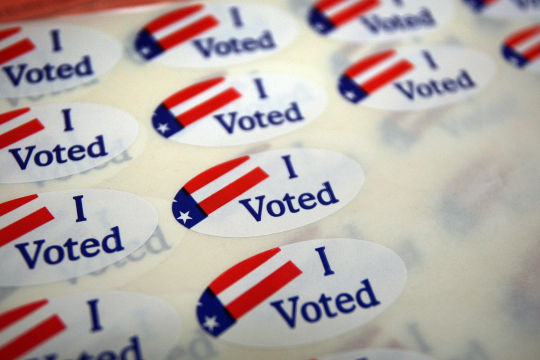Prop 14 Pushes Independent Candidates into General Elections

Proposition 14 took effect for the first time in the California primary on June 5, 2012. This California ballot initiative passed in June 2010, replacing the partisan-based ballot with a new, wide-open election process. Under Prop 14 the top two candidates, regardless of party affiliation, will move forward to the general election this upcoming November.
The results of the 2012 primary reflect Prop 14’s effort to change the voting process, at it was successful in empowering voters and candidates outside the Democratic and Republican political parties. Although the majority of the “top two” will be between Democrats and Republicans, there is an increase in the amount of independent candidates moving ahead to the general election compared to previous election years.
There will be four independent candidates among the congressional elections in November and one Independent candidate running in the state assembly election for District 28. All face Republican or Democratic opponents. The CA open primary results prove to be a successful way in breaking the past, partisan-dominant electoral process. The increase in Independent candidates in the general election will help diminish partisan bias in order to help voters primarily focus on policy issues and reforms and better represent communities.
Here is a breakdown of the Independent candidates running in the November general elections:
In Congressional District 13, Marilyn M. Singleton, a registered Independent, will be running against Democrat, Barbara Lee. In the primary, incumbent Barbara Lee won 81.1% of CD-13 vote. Marilyn M. Singleton states if elected as an independent party-affiliate, she will “have the freedom to put common sense above a party line.”
Independent, Terry Phillips will face Republican Kevin McCarthy in November, representing CD-23. Terry Phillips is a veteran journalist and entrepreneur. Phillips believes if elected, his independence from any political party will help to soften the partisan gridlock in Washington.
Voters of District 29 will choose between Independent David Hernandez and Democrat Tony Cardenas in the general elections. David Hernandez advocates for better community representation rather than party line affiliation.
runs as an Independent because he “ always been a strong believer that our government leaders need to put our country’s best interest ahead of the political parties and special interests that fund them.”For congressional District 33’s seat, Independent Bill Bloomfield and Democrat Henry A. Waxman will go head to head in November. Bill Bloomfield
As for the State Assembly elections, there is just one example of an Independent candidate running against a partisan candidate.
District 28 will see Independent Chad Walsh run against Democrat Paul Fong in the general election. Paul Fong won 54.2% of the primary vote, while Chad Walsh received 45.8%. These competitive results indicate the November race will be close between the two candidates. Chad Walsh is “running as a non-partisan candidate to move beyond politics as usual, and work collaboratively to solve California’s problems.”
California’s open primary proved to implement change in the electoral process thus far. As seen in the results, moderate candidates are beginning to receive more votes. The old ballot system, enabled extreme leftist and extreme conservative candidates to receive most votes, causing communities to feel misrepresented and disconnected from politicians elected to office. With moderate officials to choose from in the general elections, voters will ideally feel better represented and more comfortable with who they vote for. However, voters and candidates alike must wait for the general election outcomes to further see the implications of Prop 14’s amendment to the electoral process.




